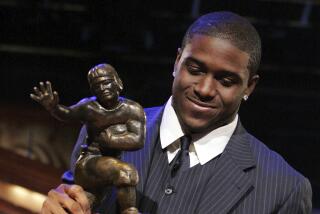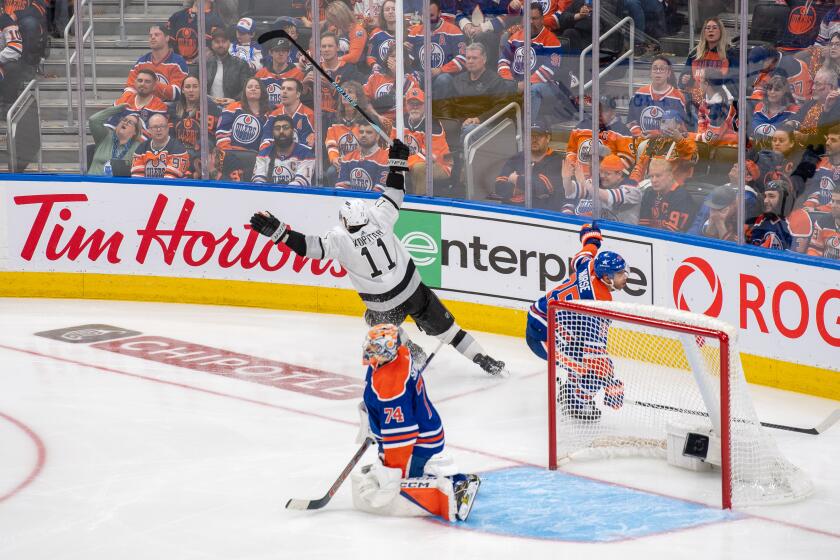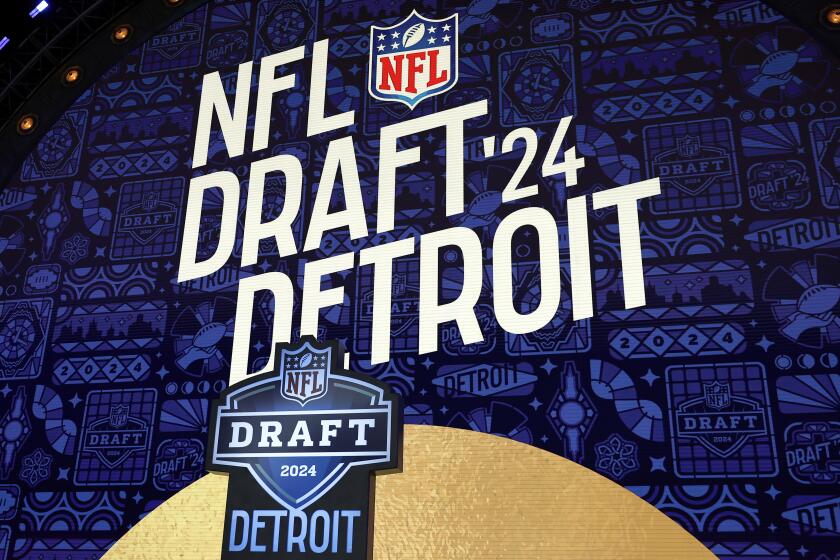Little Reggie, Little Cam and the NCAA
A parable …
Once upon a time, long ago, in a land known for sports and cattle grazing, several dozen children picked out a pasture to play their favorite game.
Their game was known as pie-pushing, and each team used tree branches to poke and push the pie past a goal.
This was a time long before naming rights, agents and shoe companies. The children played their favorite sport because they liked to run around and play. No other reason. Centuries later, in the evolution of sport, that concept would be officially voided.
After the children had played a few games, parents decided the game would need rules and a governing body. They appointed elders from the community, all of whom smoked big cigars. The elders decided they needed to be more closely involved, so they built an ivory tower next to the pasture, where they could sit on high and watch the games. Soon, they had the tower catered.
After a few games, the elders decided they would name themselves. Authority needed identity, they said.
And so they called themselves the NCAA. That stood for National Cowpie Athletic Assn.
Thing went smoothly for awhile. They even upgraded the cigars to Cubans, in exchange for putting the cigar company’s decal on each of the children’s tree branches.
But as in all things, along came a crisis. The elders were unhappy, but they knew that, with authority came responsibility. From this was born the phrase: There are No Free Cigars.
One of the star players was Little Reggie. He had moves with a pie en route to the goal that few had seen before. But Little Reggie’s parents had violated the elders’ rules by accepting a pig for their farm. In exchange, the man who gave them the pig got exclusive rights to shop around Little Reggie to professional cowpie leagues. Under the elders’ rules, a pig was an extra benefit.
But it was long after Little Reggie had joined a pro cowpie team that the elders acted, ruling that all the victories where Little Reggie played would be voided. All the other players and parents who had participated in, or watched those games, were ordered to forget them. Cowpie history books became a bunch of torn pages.
The elders were delighted with themselves. They had been tough, decisive. Some were invited to speak at Rotary luncheons.
Then it happened again, right before the cowpie playoffs.
This time, it was Little Cam, also a player who could do magical things with the cowpie. The elders learned that, before Little Cam had decided which team to play for, his father had solicited offers for as many as three pigs as payment for Little Cam’s services.
This time, they did not penalize Little Cam. They let him keep playing. They ruled that there was no way to prove that Little Cam knew his father was offering him around for pigs. They reasoned that Little Cam and his dad probably talked only about his abacus class at the dinner table.
A local sportswriter, writing on stone tablets, suggested that there seemed to be an inconsistency in these rulings. The elders responded that it was complicated, and sportswriters are not bright enough to understand nuances. This is an argument still used in modern times.
Despite the controversy, the elders were pleased with themselves. They knew that people watching the cowpie games didn’t care about cheating unless it was being done by the team beating theirs. They knew this would pass, that their power would go unchallenged and that the NCAA would become bigger and more powerful than life itself.
So this is how it came to pass, long ago and far away. And there is a moral to this story:
Where there is an NCAA, there might also be pigs and cowpies.
More to Read
Get our high school sports newsletter
Prep Rally is devoted to the SoCal high school sports experience, bringing you scores, stories and a behind-the-scenes look at what makes prep sports so popular.
You may occasionally receive promotional content from the Los Angeles Times.







